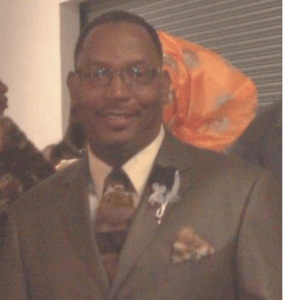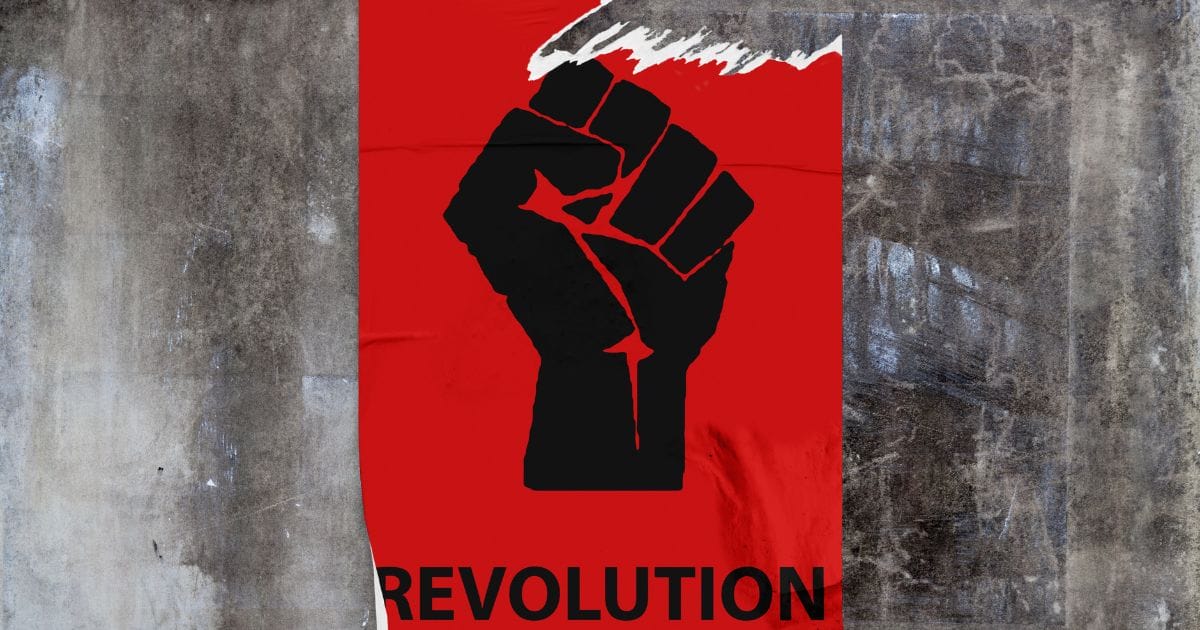By Rev. John E. Jackson
Dr. Howard John Wesley, Senior Pastor of the Alfred Street Baptist Church, says, “Jesus died for our sins, but He was killed for another reason.”
And then the late Chairman Fred Hampton once said, “I’m going to die for the people, because I’m going to live for the people.”
And then there’s New Testament Professor Dr. Obery Hendricks who points out in his book, “The Politics of Jesus,” that “Jesus was a political revolutionary…the gospels [Dr. Hendricks writes] give little or no attention to the salvation of individual souls, instead focusing chiefly on the welfare and salvation of the entire community, as in Luke’s account of the devout old Simeon, who spent the last days of his life in prayer, not for personal salvation, but for the comfort and salvation of his people (Luke 2:25-35).”
Dr. Hendricks also points out that Jesus as a political revolutionary “does not mean that Jesus wanted to start a political party, nor that he wanted to be involved in politics in the sense that we know it today, and it does not mean that Jesus wanted to wage war or overthrow the Roman Empire by force. It means that Jesus’ message called for change in individual hearts and sweeping and comprehensive change in the political, social, and economic structures in his setting in life: colonized Israel. If Jesus had had his way, the Roman Empire and the ruling elites among his own people either would no longer have held their positions of power, or if they did, would have had to conduct themselves very, very differently.”
I have included these extended quotes in this seventh installment during this year’s Lenten season to lift up the reason WHY Jesus was a threat to the political establishment of his day. Jesus wanted a change in how the most vulnerable in his day of first century Palestine were treated.
This disturbed and angered the ruling elites of his own people and outraged the colonizers from Europe who had invaded the North African region known as Palestine. In Luke’s gospel in the fourth chapter, Jesus enters the synagogue and is handed the scroll of Isaiah. Jesus could have chosen many texts of Isaiah to read that day because there were sixty-six chapters to choose from (please note that when Jesus read the scroll, there were no chapters or verses in his day).
Out of all the writings of Isaiah, Jesus chooses the verses that said, “The spirit of the Lord is upon me, because he has anointed me to bring good news to the poor. He has sent me to proclaim release to the captives and recovery of sight to the blind, to let the oppressed go free, to proclaim the year of the Lord’s favor.”
The text then says that, “he rolled up the scroll, gave it back to the attendant, and sat down. Then he began to say to them, today this scripture has been fulfilled in your hearing.” And this angered the ruling elites so much so that they wanted to kill Jesus.
Everything in that reading of the scripture that Jesus declared was fulfilled in him addressed the political, social, and economic needs of the people. In that reading there is no mention of “being saved from hell’s fires.” There is no mention of “being saved to go to heaven.” I’m not suggesting that these things were not important to Jesus, but I am suggesting that the priority for Jesus was the welfare of the most marginalized, the most vulnerable and those who Howard Thurman identified as the “disinherited.”
Jesus wanted and focused his earthly ministry on the needs of the people so that all the people starting with the poor could live in dignity and enjoy the resources that God had already made enough of for everybody to enjoy.
As we who are Christian or followers of Jesus take time to fast and pray during this Lenten season, may we consider a drastic change in how we see the ministry of Jesus and how we live the faith we profess in Jesus.
May we consider a change from the individualistic way that we practice this faith to a focus on the needs of the most vulnerable in our community? May we change the way we are celebrity focused and become poor focused without casting judgment on people who are locked in poverty?
May we ask the right questions as did Latin Bishop Dom Helda Camara who said, “If I feed a few hungry people, they call me a saint, but if I ask, why are people hungry [and go without food] in the first place, then they call me a communist and an enemy of the state.”
Do you think that if Jesus were walking the earth today that he would ask, “why are schools funded based on the property value of a community?” Do you think that he would see a fundamental orchestrated scheme to under-fund schools in poorer communities while over-funding schools in more affluent communities?
Do you think based on Jesus’ example when he walked the dusty roads of Galilee that if he walked the streets of Gary or any major city in this nation, that he would ask, “why are Black and brown communities so over policed when crime is a person- to-person issue, therefore more crime actually happens in white communities because people commit crimes against those closest to them, yet Black and brown communities are the ones that are over policed?
Do you think that if Jesus walked the earth in physical form that he would call the white Christian nationalist and the white nationalist in our governments who want to strip a women’s right to choose what happens to her body, who want to ban books that address the violence used to take land from the indigenous peoples of this country, who right now in Jackson, Mississippi, want to ignore the votes of the people and take over the city, who want to in Florida ban any teaching of the brutal reality of the chattel slavery, the Black codes, Jim Crow and second class citizenship, who are stripping away affirmative action gains and the voting rights legislation of 1965, do you think that Jesus would call them “Hypocrites,” “brood of vipers,” or “whitewashed tombs full of every unclean thing,” like he did the Pharisees and other ruling elites of his day?
And please remember that crucifixion was only reserved for political subversives. Romans could not be crucified according to Roman law, only those colonized by Rome who threatened Rome could be crucified.
I pray we use this Lenten season to reflect on why Jesus was a threat to the ruling elite and colonizers from Rome and seek to create the “beloved community,” that people like Dr. King labored for in his earthly ministry so that everybody can have enough of what they need in God’s theology of sufficiency.
As Queen mother Mari Evans said, “To identify the enemy is to free the mind.
Free the mind of the people, Speak to the mind of the people. “Speak Truth” Be Free Today.

Rev. Dr. John E. Jackson, Sr. is the Senior Pastor of Trinity United Church of Christ-Gary, 1276 W. 20th Ave. in Gary. “We are not just another church but we are a culturally conscious, Christ-centered church, committed to the community; we are unashamedly Black and unapologetically Christian.” Contact the church by email at [email protected] or by phone at 219-944-0500.






